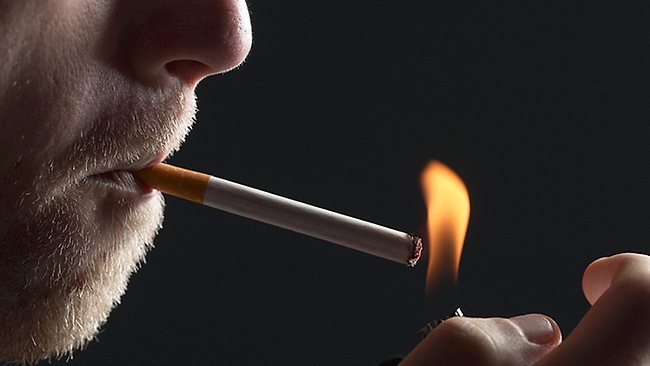
Honolulu – Gov. David Ige signed the historic tobacco legislation, Senate Bill 1030 (Act 122) into law Friday, June 19. When enacted on January 1, 2016, Act 122 will make Hawai‘i the first state in the nation to prohibit the sale, purchase, possession or consumption of cigarettes, other tobacco products, and electronic smoking devices (or e-cigarettes) to anyone under age 21.
“Raising the minimum age as part of our comprehensive tobacco control efforts will help reduce tobacco use among our youth and increase the likelihood that our keiki will grow up to be tobacco-free,” said Gov. Ige.
In Hawai‘i, 86 percent of current adult smokers begin smoking before 21 years of age; of these, 34 percent start smoking between 18-20 years old. Delaying the age when young people first experiment or begin using tobacco can reduce their risk of becoming regular or daily tobacco users and increase their chance of quitting should they become users.
An important scientific report from the Institute of Medicine strongly concludes that raising the minimum age of legal access (MLA) to 21 will significantly reduce the number of adolescents and young adults who start smoking. More than two-thirds of Hawai‘i high school students who smoke and more than half of middle school students who smoke report that they get their cigarettes from social sources such as friends and relatives who give them cigarettes or buy it for them. Raising the MLA to 21 means that those who can legally obtain tobacco will be less likely to be in the same social networks as middle and high school students.
Most U.S. states have an MLA of 18, with the exception of four states (Alabama, Alaska, New Jersey and Utah) which have raised the minimum age to 19. Hawai‘i County is one of a handful of cities/counties to have already raised the MLA to 21, having passed the bill last year.
If the MLA were changed to age 21 nationally, it is estimated that there would be approximately 223,000 fewer premature deaths, 50,000 fewer deaths from lung cancer, and 4.2 million fewer years of life lost for those born between 2000 and 2019. By the year 2100, the age 21 MLA would significantly improve maternal and fetal outcomes and lead to reductions in youth exposure to secondhand smoke and its associated health effects, as well as reductions in substance abuse.
Already, Hawai‘i has seen big wins from its comprehensive tobacco prevention and control efforts, which have led to significant health improvements for the state. Between 2001 and 2012, the death rate due to heart disease decreased 34 percent, stroke deaths decreased 43 percent, and lung cancer deaths decreased 21 percent. Hawai‘i now has the third lowest adult smoking rate in the nation, at 13 percent. This has decreased significantly since 2000, when nearly 1 in 5 adults in Hawai‘i smoked. Youth smoking has also decreased by 63 percent, from 28 percent in 1999 to 10 percent in 2013.
“Hawai‘i continues to be a leader in tobacco prevention and control,” said Director of Health Dr. Virginia Pressler. “Partners statewide have come together to support this monumental legislation that once again puts Hawai‘i at the cutting edge of public health policy and protecting the health of our youth.”
Gov. Ige also signed House Bill 525, which will make Hawai‘i state parks and beaches smoke-free. Currently, all city/county parks in Hawai‘i are smoke-free with the exception of Kaua‘i County. The state law will apply to all facilities within the Hawai‘i State Park System administered by the Department of Land and Natural Resources. Using tobacco products and electronic smoking devices, or e-cigarettes, at these facilities will be against the law as of January 1, 2016.
To assist Hawai‘i residents comply with the new legislation, tobacco and e-cigarette users are encouraged to contact the Hawai‘i Tobacco Quitline for support and free resources, including approved nicotine delivery devices. Call 1-800-QUIT-NOW or visit www.hawaiiquitline.org to learn more.
For more information about Hawai‘i’s Tobacco Prevention and Education Program, please visit www.health.hawaii.gov/tobacco.

